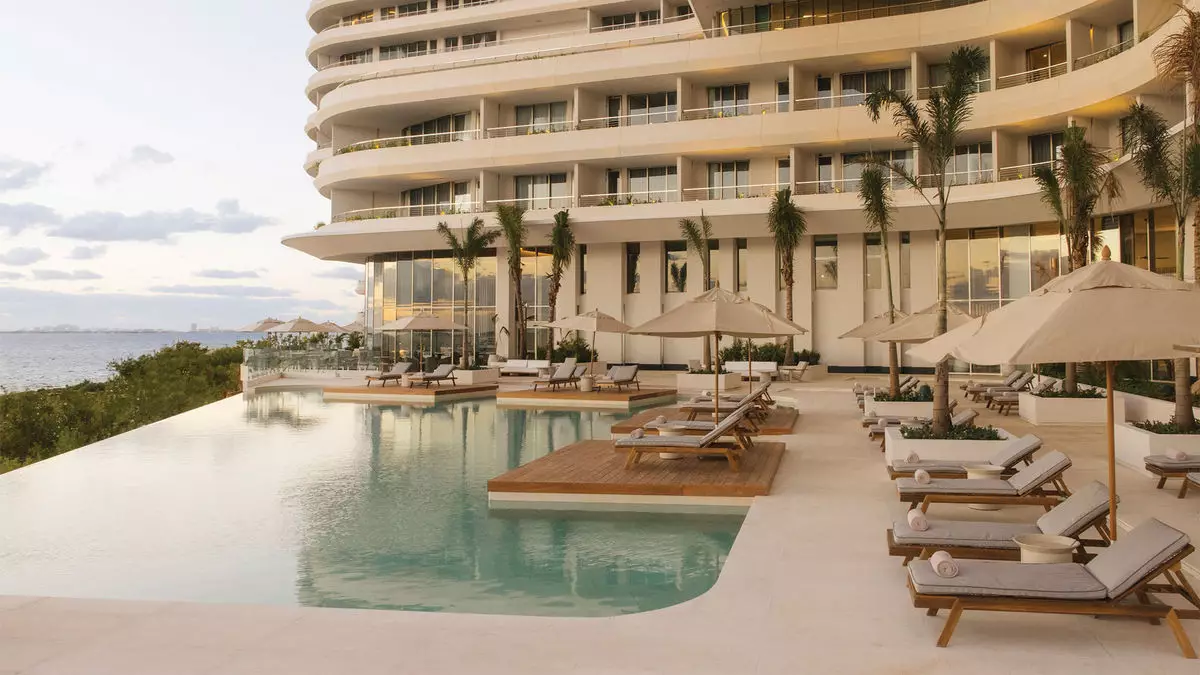In a world increasingly obsessed with health and longevity, the luxury hospitality industry is undergoing a transformation that can only be described as a wellness arms race. Hoteliers and wellness practitioners are racing to offer bespoke treatments that promise not just relaxation, but significant improvements in lifespan and healthspan. This emerging trend signifies a dramatic shift from traditional luxury experiences to sophisticated medical-wellness services, catering primarily to affluent clientele eager to invest in their health.
According to Beth McGroarty, research director at the Global Wellness Institute, the wellness market is being rapidly redefined. Luxury resorts now focus on longevity—a concept that encompasses not just aging gracefully but actively preventing diseases and enhancing quality of life. People are not only living longer but are also seeking to extend their healthy years, diverging from the aging trajectories observed in previous generations. This generational shift is largely driven by a healthcare system that still prioritizes treatment over prevention, prompting wealthy individuals to turn to high-end medical-wellness resorts for their health needs.
Luxury wellness treatments come with price tags that reflect their elite status. While spa treatments typically hover around a few hundred dollars, advanced medical-wellness therapies can reach exorbitant amounts ranging from $10,000 to $44,000. Luxury brands are leveraging the increased wealth of the upper class, particularly after the pandemic, to roll out ever more extravagant wellness offerings. For instance, The Four Seasons Resort Maui at Wailea has partnered with Next Health to present treatments like a $12,000 stem cell procedure or a comprehensive $44,000 longevity protocol, merging components such as ozone therapy and NAD+ infusions.
The market is growing more competitive, with new players entering the scene alongside established wellness giants. SBE’s recent collaboration with Tony Robbins to launch The Estate—an ambitious venture focusing on preventive health care and longevity—illustrates this trend. The project aims to create a sprawling network of hotels and urban centers dedicated to health screening and disease prevention, backed by cutting-edge technologies such as MRI scans and genetic testing. While the first hotels are set to open in 2026, the ambitious goals state a desire to dominate the hospitality landscape with an extensive reach.
In response, veteran wellness brands such as Canyon Ranch and Six Senses have been evolving their services. Six Senses introduced the RoseBar concept at its Ibiza location, merging holistic approaches with medically-integrated wellness. Meanwhile, Canyon Ranch’s Longevity8 program offers a comprehensive health assessment with an array of diagnostic tests and consultations for a steep price. Similarly, brands like SHA and Lanserhof continue to evolve, indicating that the wellness sector is in a constant state of innovation to capture a growing market.
Despite the opportunities presented by this burgeoning market, defining a clear identity is becoming more challenging for many brands. The term “longevity” is becoming loosely applied; what constitutes a genuine longevity treatment remains ambiguous. As McGroarty warns, the risk of brand dilution and consumer confusion increases as services stretch the boundaries of what longevity actually encompasses.
While catering to the wealthiest segments of society, there are potential issues of accessibility and relevance as the market risks saturation. The emphasis on a medical-oriented wellness approach primarily benefits a small fraction of the population, leaving many traditional wellness seekers feeling left out. With numerous resorts offering similar treatments, distinguishing one’s offerings will be crucial to maintaining a competitive edge.
As the wellness arms race continues to expand, it holds the potential to reshape the luxury hospitality landscape fundamentally. With an influx of money and interest in longevity and preventive health, the sector is poised for robust growth. However, for this trend to be genuine and sustainable, the industry must grapple with the ethical implications of accessibility, transparency, and market clarity. As this sector evolves, a balance must be struck between premium offerings and universal approaches to wellness, ensuring that the promise of longevity benefits not just the wealthy few, but society as a whole.

